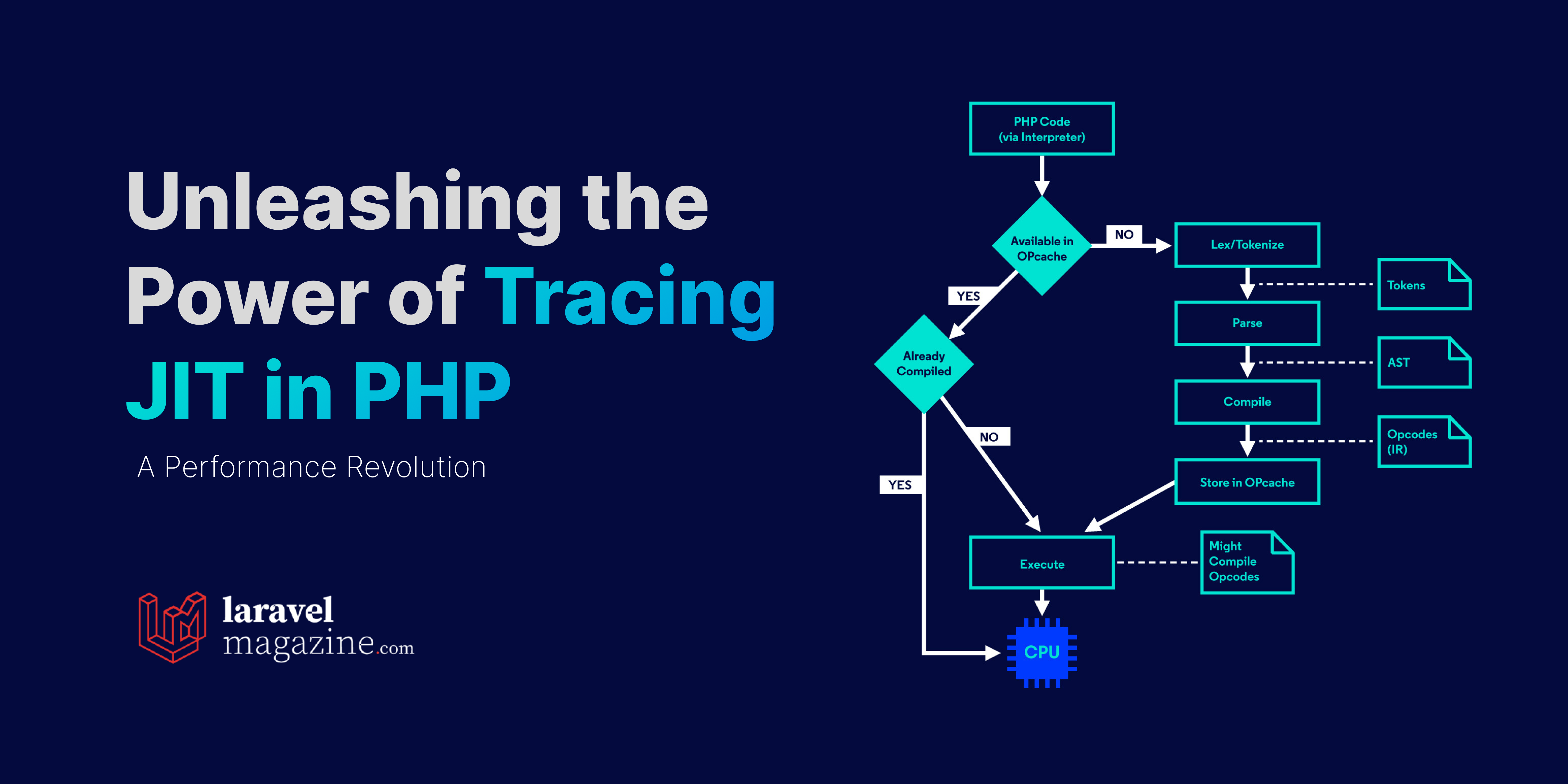

In the dynamic world of web development, performance is a critical factor. PHP, one of the most popular server-side scripting languages, has evolved over the years to meet the demands of modern web applications. A significant contributor to PHP's performance boost is the integration of Tracing Just-In-Time Compilation (Tracing JIT) in the PHP runtime engine. In this article, we will explore the concept of Tracing JIT in PHP, its working principles, and how it has transformed the language, making it faster and more efficient.
A Quick Overview of PHP
PHP is a versatile server-side scripting language widely used for web development. It powers millions of websites, and its ease of use and extensive library support have made it a top choice for developers. However, PHP has faced criticism for its interpretation-based execution, which was deemed slower compared to natively compiled languages.
Understanding Tracing JIT in PHP
Tracing JIT is a revolutionary technology that has found its way into PHP, allowing it to bridge the performance gap with natively compiled languages. Tracing JIT in PHP leverages the Just-In-Time Compilation (JIT) approach, but with a focus on optimizing frequently executed code paths in real-time. This enables PHP to dynamically adapt to the runtime behavior of the application, making it significantly faster and more efficient.
How Tracing JIT in PHP Works
The core principle of Tracing JIT in PHP is to identify frequently executed code paths, or "traces," and optimize them on the fly. Here's how it works:
Tracing: The PHP runtime engine monitors the execution of PHP code, keeping an eye on which code paths are executed most frequently. These hot paths are identified as "traces."
Recording: When a trace is detected, the Tracing JIT compiler records the executed instructions, creating a trace tree that represents the relationships between different traces.
Optimization: The recorded traces are then optimized by the compiler. This optimization process may involve inlining functions, removing unnecessary branches, and applying various performance-enhancing transformations.
Reuse: The optimized traces are stored and reused whenever the same code path is encountered again. This avoids the need for repetitive compilation and interpretation, leading to a dramatic reduction in runtime overhead.
Advantages of Tracing JIT in PHP
Performance Enhancement: Tracing JIT significantly improves the performance of PHP applications by targeting and optimizing frequently executed code paths.
Adaptability: PHP applications are known for their dynamic and ever-changing behavior. Tracing JIT can adapt to these dynamic scenarios and adjust optimizations accordingly.
Reduced Compilation Overhead: By reusing optimized traces, Tracing JIT reduces the need for recompilation, thus conserving computational resources.
Compatibility: Tracing JIT is compatible with the majority of PHP applications, making it a seamless upgrade that can boost the performance of existing codebases.
Cost-Effective: Optimized code paths can lead to lower hardware requirements and reduced infrastructure costs, making it cost-effective for hosting and scaling PHP applications.
The integration of Tracing JIT in PHP was a significant milestone in the language's evolution. The implementation of Tracing JIT in PHP 8.0 has made it one of the fastest scripting languages available, as it optimizes code paths during runtime. This improvement opens new doors for PHP developers to build high-performance web applications and services.
Tracing JIT in PHP has ushered in a new era of performance optimization, enabling PHP to compete with natively compiled languages. The dynamic adaptation to runtime behavior, reduced compilation overhead, and compatibility with existing codebases make Tracing JIT a game-changer for PHP developers. As PHP continues to evolve, we can expect even better performance and efficiency, making it a top choice for building high-performance web applications.
If you enjoyed this article, please consider supporting our work for as low as $5 / month.
Sponsor
Written by
Writing and maintaining @LaravelMagazine. Host of "The Laravel Magazine Podcast". Pronouns: vi/vim.
Get latest news, tutorials, community articles and podcast episodes delivered to your inbox.